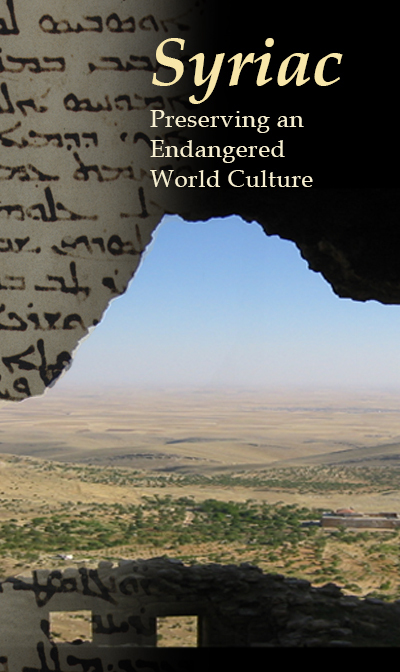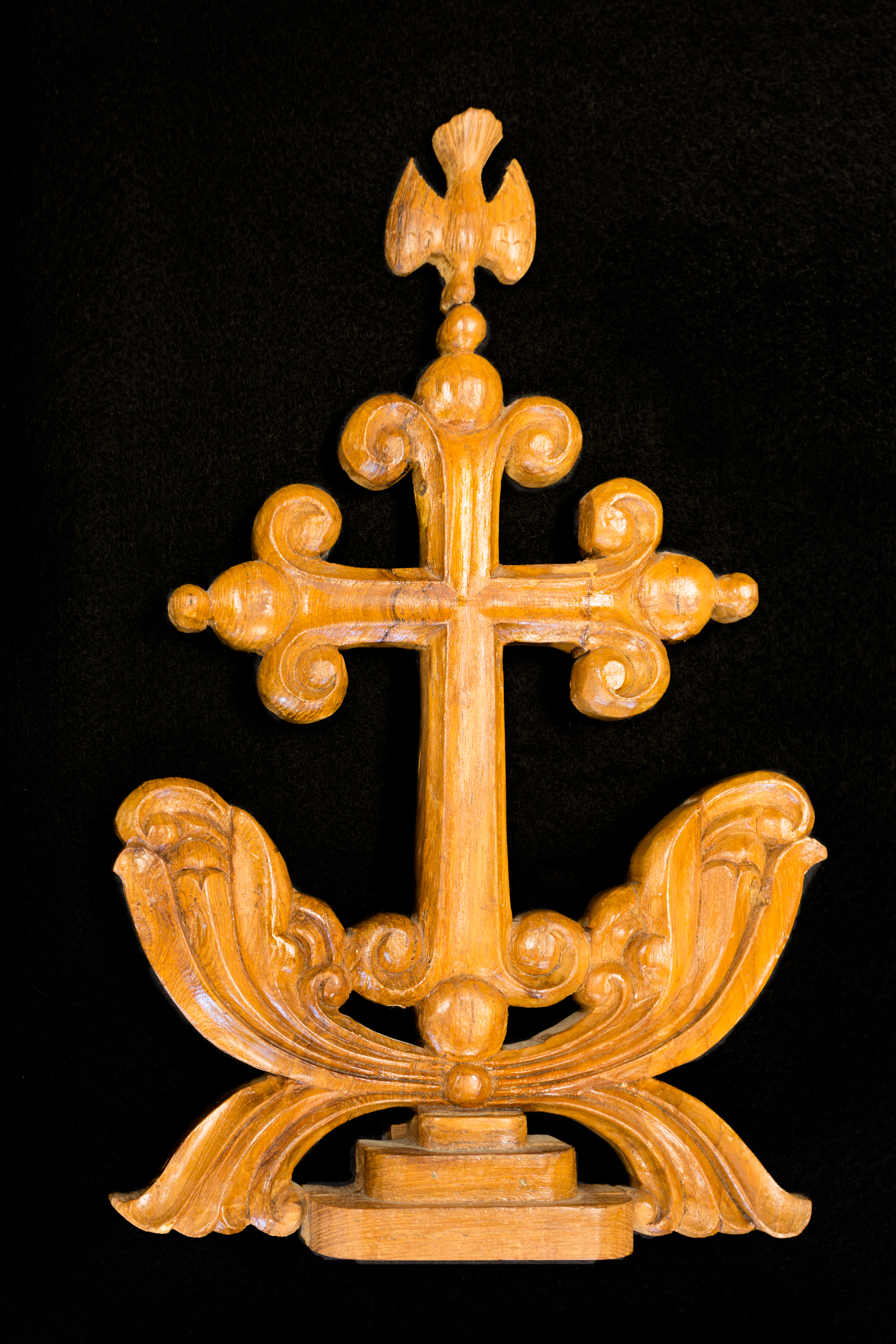Home » Divinity School » Cohen Hall Hosts Exhibit on “Syriac: Preserving an Endangered World Culture”
Cohen Hall Hosts Exhibit on “Syriac: Preserving an Endangered World Culture”
Posted by vrcvanderbilt on Friday, February 9, 2018 in Divinity School, Events, Fine Arts Gallery, HART, News, Student/Alumni, VRC.
 For nearly two thousand years, Christians across the Middle East and Asia have shared a common heritage through the Syriac language (a dialect of Aramaic) and culture. Syriac texts are one of the largest surviving bodies of literature from the period, including more than 20,000 manuscripts and fragments related to theology, philosophy, commerce, science, and medicine. Many of the Syriac-speaking communities of the Middle East have faced numerous threats to their survival. Indeed, these little known cultures are on the brink of extinction.
For nearly two thousand years, Christians across the Middle East and Asia have shared a common heritage through the Syriac language (a dialect of Aramaic) and culture. Syriac texts are one of the largest surviving bodies of literature from the period, including more than 20,000 manuscripts and fragments related to theology, philosophy, commerce, science, and medicine. Many of the Syriac-speaking communities of the Middle East have faced numerous threats to their survival. Indeed, these little known cultures are on the brink of extinction.
In response, the exhibit “Syriac: Preserving an Endangered World Culture,” currently on view in Cohen Memorial Hall, showcases the enduring presence of Syriac culture around the globe.The exhibit features reproductions of manuscripts, historical photographs, as well as a local connection to the history of Tennessee with items from the family collection of Rev. Dr. P.K. Geevarghese, who served as priest of the first Indian Orthodox parish in Tennessee. Geevarghese’s son, Dr. Sunil K. Geevarghese, is a member of the Vanderbilt School of Medicine faculty and contributed to this aspect of the exhibit.
“There was a period of time—about 300 to 1300 A.D.—when Syriac culture, especially its literature, flourished,” said David Michelson, assistant professor of the history of Christianity at Vanderbilt Divinity School. “Syriac-speaking communities could be found in what today would be Turkey, Lebanon, Israel, Palestine, Syria, Iraq, Iran, India, Central Asia, China and Mongolia. In fact, the medieval version of the Mongolian alphabet was actually derived from the Syriac alphabet.”
Michelson, also an affiliate assistant professor of classical and Mediterranean studies, continued: “Today the most robust communities of the Syriac religious heritage can be found among the ‘St. Thomas Christians’ of Kerala, India. The Syriac churches of India continue to be one of the major providers of new clergy for the Roman Catholic Church worldwide. Moreover, as these St. Thomas Christians have emigrated to the United States, they have founded parishes that continue their unique Syriac liturgy and traditions. The first such parish in Tennessee was St. Paul’s Indian Orthodox Syrian Church in Chattanooga, founded 50 years ago by the Rev. Dr. P.K. Geevarghese. We are delighted to highlight this aspect of Tennessee history.”
The exhibit is curated by Michelson, Charlotte Lew, exhibit coordinator of the Divinity Library, Stephanie Fulbright (MTS’17), and Julia Liden (MTS’18), with assistance from the Vanderbilt Fine Arts Gallery. Free and open to the public through March 2, the exhibit is on view in the second floor lobby of Cohen Hall and will remain permanently on display online.
Sponsored by Vanderbilt Divinity School, Jean and Alexander Heard Library, Vanderbilt Fine Arts Gallery, and the Program in Classics and Mediterranean Studies, this exhibition is part of ongoing research at Vanderbilt exploring the rich and far-reaching role of Syriac culture in world history. Vanderbilt is host to Syriaca.org, a first-of-its-kind online reference hub for the study of Syriac history, literature, and culture. “We invite you to browse the exhibit and to explore Syriaca.org,” said Michelson. “By learning about Syriac culture and history, you are helping to preserve it.”
Exhibit hours are from Monday through Friday, 8 am to 6:30 pm, and weekends, 1 to 6 pm. For more information and online images of the exhibit, visit the exhibit website.
*St. Thomas Cross, traditional East Syriac design. Kerala, India. 2006. Photograph by Henry Shipman. The St. Thomas Cross is a symbol of the shared heritage among the many Syriac denominations in India. (Ann Marie Deer Owens contributed to this article, Research News @Vanderbilt)

©2026 Vanderbilt University ·
Site Development: University Web Communications